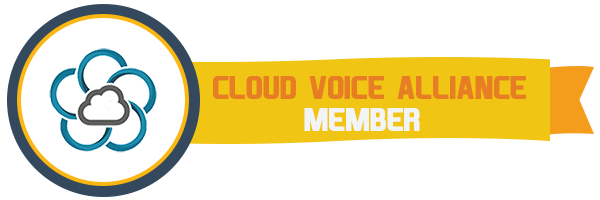What Solution is Right for You?
What is an On-Premise Phone System?
An on-premise phone system utilizes hardware & software which is located at a customer location – typically in an IT closet, break room or some other area of the business. These components go by a variety of names such as common equipment, CPU, KSU, Server, PBX, etc. These devices house various circuit cards which support operation of the various telephones, phone company lines, voicemail, etc. On-premise systems can also include a VoIP PBX or IP PBX. The terms are interchangeable. These are similar to traditional on-premise systems in that they too reside at a customer location. One of the main differences is how the telephones themselves communicate with the on-premise hardware. Instead of using traditional telephone wiring, the VoIP PBX utilizes your existing computer networking to carry the voice traffic between your telephones and your on-premise system. When using a VoIP PBX, your calls can still go through a traditional phone company as well as the ability to utilize Voice over Internet Protocol (VoIP) to take advantage of SIP Trunking. SIP trunking is yet another option for customers to obtain ‘dial tone’ services obtained from an Internet Telephony Service Provider (ITSP) rather than a traditional telephone company.
- Typically a higher startup cost to purchase the system
- Potential maintenance costs on system as it ages
- Lower monthly cost after initial purchase of system
- Ability to utilize either traditional telephone companies or SIP trunk provider for dial tone
- On-premise system provider completes a pre-installation checklist and qualifies your network if utilizing VoIP.
- On-premise system provider will design, configure and install your on-premise system.
- On-premise system provider will make recommendations on system usage & train staff.
Positives
- You do not have to change your current telephone company
- SIP Trunks (VoIP) can be added to some systems, potentially reducing monthly costs
- On-premise systems can either utilize existing telephone wiring or operate on your computer network (LAN). This can be a huge plus for businesses that do not have the cabling infrastructure capable of handling VoIP.
- Owning your own system can reduce expenses over time
- Customer can rely on their on-premise system provider for support and maintenance, freeing the customer from that task and allowing them to focus on their business.
- Training of staff on the new on-premise system is handled by your on-premise system provider.
- With SIP trunking and some PRI providers, loss of your Internet or other catastrophic event – rerouting of calls can be an automatic process until service is restored. This can take the stress off of you when the unexpected happens.
Negatives
- On-premise systems need a provider who has the expertise to manage it properly.
- Technical staff will be needed for software upgrades if needed as well as potential system expansion.
- Loss of power or on-premise system failure can result in callers not being able to reach your business – causing frustration, potential lost business and panic if your system is no longer supported.
- System replacement. At a point, equipment does get older and will need to be replaced.
What is a Cloud / Hosted Phone System?
Cloud or Hosted phone systems utilize hardware & software which is typically housed in a secure data center with redundant power and telephone company connections. This hardware & software is provided by a service provider/ITSP ‘off premises’. Cloud PBX, Hosted PBX or Hosted VoIP are all terms that essentially mean the same thing. These are sometimes known as Internet Phone Systems and the ITSP is responsible for housing the Cloud/Hosted system as well as handling the technologies required to provide services for the customer’s system. The telephones, sometimes called endpoints or desk sets connect to the customer’s computer network and connect via the Internet back to the data center which houses the Cloud or Hosted system. There is no ‘system’ hardware at the customer location – only telephones. The Cloud / Hosted provider charges a monthly fee that is inclusive of a feature set, and/or a certain quantity of minutes per month.
- Typically a lower equipment and startup cost
- Cloud / Hosted system provider completes a pre-installation checklist and qualifies your network. Not all companies provide this service, so double check with your Cloud / Hosted system provider.
- Initial system programming completed by your Cloud / Hosted system provider.
- No maintenance costs of the Cloud / Hosted system, however customer may desire Cloud / Hosted system provider to handle system changes for a fee.
- Upgrades and new features are included
- Enhanced features such as conference rooms & call recording may be at an additional cost.
Positives
- Relocating an individual phone is simple. Simply unplug it and plug into another network jack ready to support the phone anywhere in your office.
- Upgrades and new features are handled transparently by your Cloud / Hosted provider – behind the scenes without affecting your system.
- Add additional telephones, lines or virtual numbers with ease.
- Expansion hardware such as circuit cards and cabinets needed for on-premise systems are not needed when expanding Cloud / Hosted systems, resulting in cost savings.
- Redundant internet connection devices & services available for clients with mission critical businesses that cannot afford to be down, thus assuring more consistent reliability over only one internet connection.
- Loss of Internet or other catastrophic event will have a more minimal effect on the business as calls can be automatically forwarded to cell phones or other alternate locations in the event of an outage.
Negatives
- Voice quality as well as the connection to the Cloud / Hosted system are dependent on your internet connection.
- Loss of Internet will result in loss of phone service, however, with automatic failover – calls can be automatically routed during an outage.
- Flexibility of the system can be limited depending on the Hosted / Cloud provider.
- Depending on the Cloud / Hosted provider – cancellation fees may apply if you try to terminate early.
- Not all Cloud / Hosted providers are created equal. Make sure you have confidence in your choice.
What is a Hybrid Phone System?
A hybrid phone system is an on-premise phone system with the added capability to support some features and capabilities often considered a Cloud service. Features such as SIP trunks, VoIP telephones – both on-premise and remote are a few of those features that are available. These newer features can be a benefit to some businesses, while still allowing you to leverage your existing cabling infrastructure, using digital telephones and saving you the cost of upgrading your network to support VoIP telephones.










